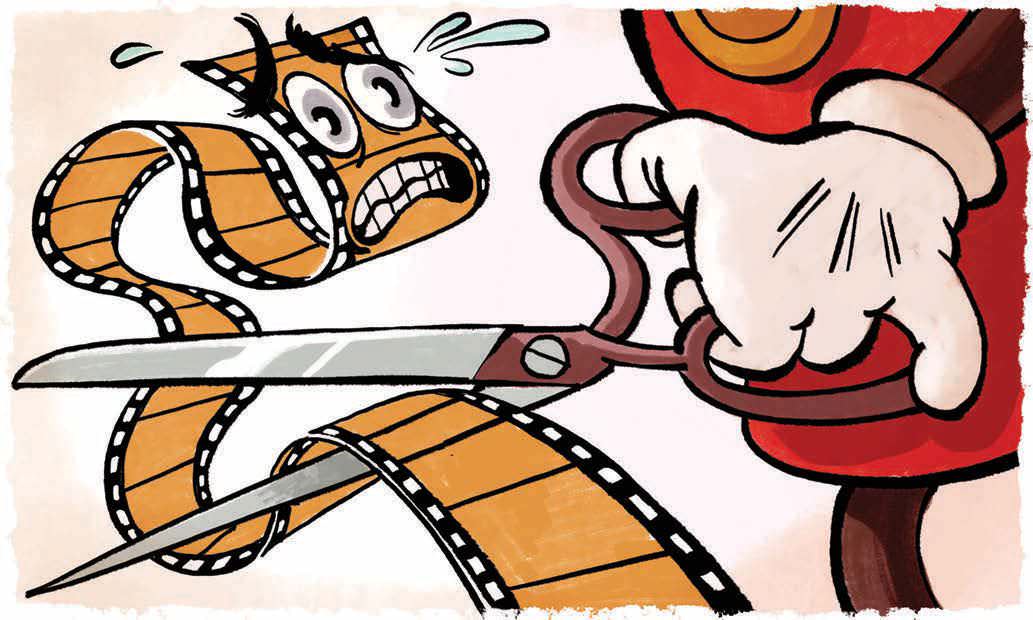In its quest to beat Netix, it might have to.

NO COMPANY HAS been more responsible for shaping the modern entertainment landscape than Walt Disney. In 1937, with Snow White and the Seven Dwarfs, its rst feature lm, Disney invented the family blockbuster. In 1954, with Disneyland, an anthology series hosted by Walt Disney himself, it became the first movie studio to strike out for the wild west of television. Since then, Disney’s dominance has only grown. Of the dozen films with the largest worldwide box-oce take since 2010, Disney released eight.
Those successes, however, belie real danger on the horizon for Disney. In recent years, many of the company’s traditional strengths have slowly turned into weaknesses—like a fairy-tale castle gradually †ooded by its own moat.
Take television. Disney has long prospered thanks to the cable bundle, which, like a private-sector tax system, levies a large annual fee on the vast majority of U.S. households. Disney’s most valuable network, the sports juggernaut ESPN, collects approximately $8 per cable-package subscriber a month. No other basic-cable channel makes more than $2.
But the cable business is †oundering. Nearly half of adults ages 22 to 45 didn’t watch any broadcast or cable TV in 2017, according to a study by the marketing agency Hearts & Science, and the number of so-called cord-cutters abandoning cable is growing by the year. This is troubling news for ESPN, whose daily viewership has declined more than 10 percent since 2011. It’s nearly as troubling for Disney, which makes more money from television than from its movies or amusement parks.
This story is from the {{IssueName}} edition of {{MagazineName}}.
Start your 7-day Magzter GOLD free trial to access thousands of curated premium stories, and 9,000+ magazines and newspapers.
Already a subscriber ? Sign In
This story is from the {{IssueName}} edition of {{MagazineName}}.
Start your 7-day Magzter GOLD free trial to access thousands of curated premium stories, and 9,000+ magazines and newspapers.
Already a subscriber? Sign In

JOE ROGAN IS THE MAINSTREAM MEDIA NOW
What happens when the outsiders seize the microphone?

MARAUDING NATION
In Trumps second term, the U.S. could become a global bully.

BOLEY RIDES AGAIN
America’s oldest Black rodeo is back.

THE GENDER WAR IS HERE
What women learned in 2024

THE END OF DEMOCRATIC DELUSIONS
The Trump Reaction and what comes next

The Longevity Revolution
We need to radically rethink what it means to be old.

Bob Dylan's Carnival Act
His identity was a performance. His writing was sleight of hand. He bamboozled his own audience.

I'm a Pizza Sicko
My quest to make the perfect pie

What Happens When You Lose Your Country?
In 1893, a U.S.-backed coup destroyed Hawai'i's sovereign government. Some Hawaiians want their nation back.

The Fraudulent Science of Success
Business schools are in the grips of a scandal that threatens to undermine their most influential research-and the credibility of an entire field.